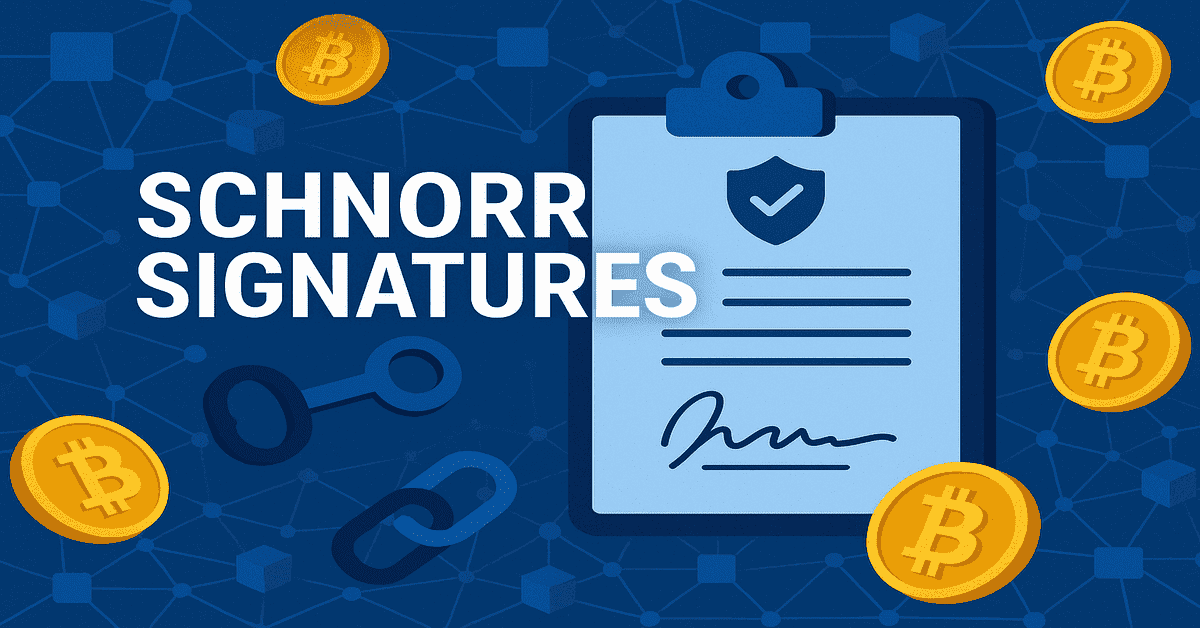
How Schnorr Enhances Multi-Signature Transactions
1. Overview of Schnorr Signatures
Schnorr Signature is a cryptographic algorithm designed to ensure authenticity and data integrity in digital environments. It is regarded as one of the most efficient and secure forms of digital signatures. This algorithm utilizes elliptic curve cryptography to generate and verify signatures, offering compact size and superior processing speed compared to traditional solutions.
2. Key Advantages of Schnorr Signatures
Schnorr Signatures provide several distinct benefits:
- Optimized storage: Smaller signature size helps reduce data load on the network.
- High verification speed: Faster processing performance compared to earlier algorithms like ECDSA.
- Support for signature aggregation: Allows combining multiple signatures into one, simplifying transaction complexity.
- Enhanced privacy: Capable of hiding transaction structure and participant count in multi-signature transactions.
- Resistance to signature malleability: Prevents alteration of signature content while maintaining its validity.
3. Applications in Multi-Signature Transactions and Smart Contracts
One of the standout features of Schnorr is its ability to support aggregated signatures, enabling multiple parties to co-sign a transaction with just one combined signature. This not only reduces transaction costs but also boosts security and privacy. As a result, multi-signature transactions and smart contracts become simpler, more scalable, and more cost-effective.
4. Role in Bitcoin Network Upgrades
The introduction of the Taproot upgrade integrated Schnorr Signatures into the Bitcoin network, bringing high expectations for enhanced scalability, privacy, and overall blockchain efficiency. This marks one of the most significant changes to Bitcoin in recent years, reflecting a shift toward modern cryptographic solutions.
5. Comparison Between Schnorr and ECDSA
| Feature | Schnorr | ECDSA |
|---|---|---|
| Signature size | Smaller | Larger |
| Verification speed | Faster | Slower |
| Signature aggregation | Supported | Not supported |
| Malleability resistance | Strong | Weak |
| Multisig efficiency | High | Low |
This comparison highlights Schnorr’s technical superiority and potential for broader adoption in blockchain networks, especially as the demand for scalability and optimization continues to rise.